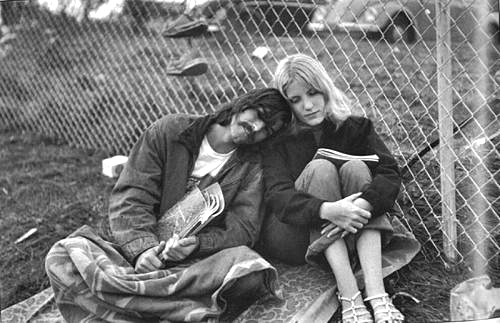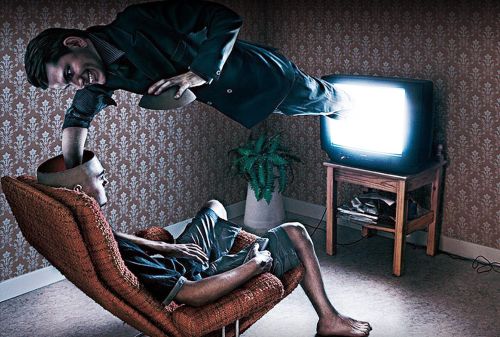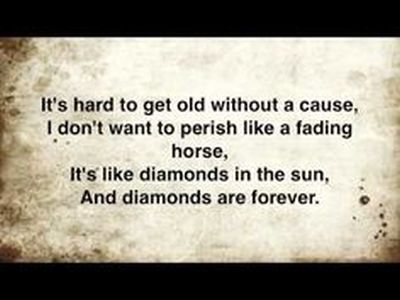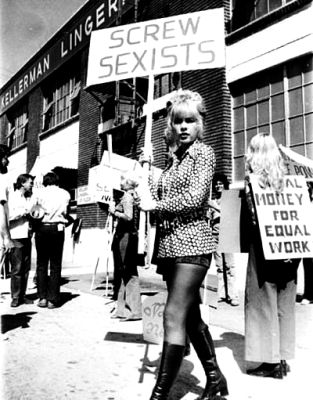An Analysis of Political Correctness
Introduction
Political correctness denotes a complex of beliefs which by their followers are considered the only decent human attitudes.

Irish_women in Dublin demonstrates in favor of more Muslim immigrants. Foto Doherty - Stand.
This is such attitudes as anti-racism, claiming that humans across the globe are completely identical except for skin color and some other visible physical differences; feminism, which claims that women and men are exactly alike except for some insignificant bodily details. It is argued that it is a free existential choice, whether you want to define yourself as a man or a woman or something in between.
Political correctness argues for open borders and free immigration - since we all basically are alike, so what does it matter?
It is politically correct to think that for the individual's personal development, upbringing and education means almost everything, and hereditary properties are of minor importance.
Political Correctness was Born at the American Universities

Demonstration at American University. Photo American Renaissance.
Professor Howard S. Schwartz from Oakland University believes that the cradle of political correctness stood in the American universities and from the beginning, it was born as a complex of "correct" attitudes.
The term "political correctness" appeared in the public debate in an article in the New York Times by Richard Bernstein in 1990. Bernstein described political correctness as follows: " - there is a large body of belief in academia and elsewhere that a cluster of opinions about race, ecology, feminism, culture and foreign policy defines a kind of "correct" attitude toward the problems of the world, a sort of unofficial ideology of the university."
Note that right from the beginning, political correctness was about a set of attitudes and not only about using correct words, such as "Afro-American" instead of "black", "socially disadvantaged low-income areas" in instead of "ghetto" and so on.

Typical T-shirt from the American University's environment.
Bernstein continued: "Central to pc-ness, which has its roots in 1960's radicalism, is the view that Western society has for centuries been dominated by what is often called "the white male power structure" or "Patriarchical hegemony." A related belief is that everybody but white heterosexual males has suffered some form of repression and been denied a cultural voice."
"But more than an earnest expression of belief, "politically correct" has become a sarcastic jibe used by those, conservatives and classical liberals alike, to describe what they see as a growing intolerance, a closing of debate, a pressure to conform to a radical program or risk being accused of a commonly reiterated trio of thought crimes: sexism, racism and homophobia."
Does Political Correctness Exist?
Political correctness is often used in everyday life to bring opponents to silence. If one in a discussion among friends or colleagues come too close to one of its key issues - such as talking about that human races exist, or that intelligence is hereditary or there are differences between women and men in addition to the physical appearance - one will often find that a dominant person in the group resolutely interrupts: "Now it may be enough (name), I simply refuse to discuss such subject"; As if you had said something obscene. Then no one wants to discuss the topic anymore, and after a short silence, the group finds something else to talk about.

Different dog races have less genetic similarity than different human races. Screenshot from Harald Eia's Brainwash.
The political correctness' proponents reject the claim that they use a complex of "correct" attitudes - supported by implied threats of accusations for thought-crimes and subsequent social exclusion - to bring the opponents into silence. According to their statements, there is no authorized "political correctness" that will make all non-believers into suspected heretics. They argue that their opinions are merely natural and modern human attitudes raised by groups that previously were suppressed, but now demand their natural place in society.
But the attitude-complex exists. When we switch on the TV news, we meet the daily politically correct sunshine stories of well-integrated "refugees", we will watch unaccompanied refugee "children" play soccer and so on. But there is never anything about the long-term consequences of the massive muslim immigration. Both TV channels bring daily scandals about US President Donald Trump - the leader of our most important ally - surely because he is a white man and does not match the politically correct demands for sensitivity and tolerance.

The TV series 1864 aimed to show that nationalism is meaningless, and you can only get into trouble by loving your own people. Treacherous leaders confirmed the wickedness of the old white men. Photo Frankfurter Algemeine.
All drama series produced by Denmark's national TV have been politically correct projects. The former drama chief in Ingolf Gabold himself admitted in an interview in the newspaper Politiken: "I am political. And I have been political in the development of this drama," Gabold said and told that the drama series "1864" should direct the spotlight on the DF and "all the isolation that lies in the Danish People's Party's very nationalist belief in Denmark and the Danish."
In the Newspaper, Nordjyske Stifttidende Michael Thestrup wrote: "The red-radical is so ingrained that it is inconceivable that DR will create TV drama, in which the hero is a beautiful, intelligent, empathetic, self-employed and right wing." And we may add that if it were to happen that DR made such a series, then the hero with absolute certainty would be a woman or a man of other ethnic origin. One simply can not come up with a sympathetic white man in his prime.
In the TV series "Chronicle" all women are strong women, and the men are either greedy capitalists or some pathetic weaklings. Thestrup continues: "In the "Chronicle" the villain Kaj Holger is a greedy, deceptive, brutal, dominating, manipulative, collaborationist and conservative - while the hero, Palle From, is brave, romantic, devoted, compassionate, empathetic and socialist." - "In Taxa, the disgusting and intriguing capitalist, Herman, from the City Car tries to take over our beloved Krone Taxa." "In "Borgen", the beautiful heroine of the Moderates goes through fire and water to bring Denmark back on the right politically correct immigration policy, and for that reason, even refuses to become a prime minister. Conversely, the Freedom Party (DF) is pictured by a fat, unkempt, uneducated, rude and unattractive Svend �ge Saltum (Ole Thestrup)."
Strong women and adult men, who break down sobbing, are integral parts of Scandinavian TV series.

In the TV series Borgen, the main character, the strong and sympathetic Prime Minister Birgitte Nyborg, fights for a decent politically correct immigration policy, even though it will cost her the position as prime minister. Photo: The Case for Global Film.
We meet the political correctness when we take a channel tour; there we will find that - if it is not old American movies - most interviewers, TV-hosts and traveling TV-journalists will be women or men of other ethnic origin. When they make an interview with a representative of a company, scientific institution, university or similar, the representative will most often be a woman. It is simply not appropriate to put up with a white man in his prime.
It is well known that in elementary school masculine virtues such as determination, vigor, physical strength and abilities, discipline and desire for competition had become hated, while feminine virtues as kindness, understanding, empathy, tolerance and dialogue are in focus - which is very damaging for the boys who sneak along the walls with raised caps.
The Roots of Political Correctness
It is easy to see that the attack on the white males is an attack on the father, who serves and works for the family's sake. It is a rejection of all the father's admonitions about duties and moral rules. The politically correct rebels believe that the white males have been on stage for too long, and now it's time for their victims, teen-agers, women, homosexuals and ethnic minorities to enjoy the limelight.

The Man in the Grey Flannel Suit. - From Wikipedia.
Professor Schwartz believes that the father's role, which is largely identical to Freud's superego, was rejected around 1970-80, and the narcissistic psychology's ego ideal took its place. Freud's ego ideal is the fantasy of returning to the early childhood's narcissism, where the mother was the child's whole world and satisfied all its needs, without it first had to earn the right to it. It merely had to scream, then immediately came a nice warm breast full of the sweetest milk.
In the US, the cultural forerunners of the attack on the father were the novel "The Man in the Gray Flannel Suit" from 1955 and some books on organization. The main character of the novel is Tom Rath, a young World War II veteran, who tries to balance his marriage and family life with the demands of his career position in a New York television network, while still suffering from his participation in the war. It turns out that his girlfriend from his stay in Italy during the war has born a son by him. Everyone drags and pulls him from all sides, and finally, he gives up and satisfies with a 9 to 5 job.
Strangely, the attack on the father, who serves and works for the family, seems to take place earlier in Denmark than in the United States. "The Song about Larsen" by Sven Moeller Kristensen, the novel "A man is sitting on a tram" by Mogens Klitgaard and "The disappeared head clerk" by Hans Scherfig were all written before the war in the end of the thirties, but became really popular in the sixties, when the "youth rebellion" took off.

"A man is sitting on a tram" by Mogens Klitgaard - From Goodreads.com.
"The song about Larsen" is about the average Danish man, named Larsen, who loses the joy of life in pursuit of material prosperity, and satisfies with a life with daily food packages in the usual anonymous gray suit of the clerk. "It should be so good, and so, it's actually bad," the song's refrain sounds.
In the novel "A man is sitting on a tram" is told about the retail seller Lundegaard, who gradually gets all his dreams of a happy life in prosperity with his family crushed and goes down with alcohol and moral decay.
The most important attack on responsible, conscientious men with power and authority was done by Hans Scherfig in "The Lost Head Clerk" from 1938. Theodor Amsted is a head clerk in the War Department - a powerful position - but is secretly longing for freedom. When his former classmate from the Metropolitan School blows up himself in the park Amager Fælled, Amsted makes it look as it is him, who is dead. He flees to Tisvildeleje, where he is living the free life, collects insects in glass and falling in love platonically. He is discovered and in the end, he is sentenced to prison where he finally finds true happiness in the prison's order and regularity - that he - according to Scherfig - had been brought up to be accustomed to following the bourgeois society's ideals.

Ove Sprogø in the filmization of Hans Scherfig's novel "The Lost Head Clerk", which is about a man of authority and power that breaks down because of his inner weakness and longing to be free from responsibility - Photo from imusic.
These novels and songs present a picture of the father as one, who has sold himself and thereby lost his freedom by adapting to the capitalistic society with the purpose of achieving material prosperity. Many young people do not think that this material prosperity is worth the price. Therefore, they refuse to identify with the father in order to preserve the freedom that he had lost.
There is the peculiarity of the attack on the white men that the cause of their power and importance is never mentioned. White men are a small minority among all the world's men, yet they are the ones, who created the entire Western civilization and all its institutions, which largely has been copied all over the world. It is white men, who invented electricity, diesel engines, cars, airplanes, penicillin, fertilizers and so on and so on - and brought all these inventions to Africa and Asia - to these countries' enormous benefit. But the politically correct people prefer to talk about social and technological development, as something that happened all by itself - like flowers that come out in the spring.
The young rebels do not take in consideration that the father's sacrifice is not to gain prosperity for himself - but to support the family. Under the protection of the fathers and thanks to their prosperity and tax payments, the politically correct rebels can identify with revolutionary movements in developing countries, historic revolutionaries and other ethnic groups supposedly suppressed, thereby maintaining their sense of narcissistic almight and importance. All their talking of revolution is a completely unrealistic fantasy - similar to children' play - that shall promote themselves as important heroes.

Autonomous or antifascists in action against the authorities. Like the Chinese Red Guards, they are discreetly supported by those in power and carefully covered by the main stream Medias. In Denmark, it is the politically correct politicians who are holding their hands over them, making the taxpayers pay for their hang-out places - Photo Anna Lyttiger.
In Western culture, it has for centuries been the father's task to protect the family from the cruel external reality while raising the children so that they are ready to meet it when they become old enough. On the other hand, the role of the mother has been to give them a deep sense of being loved, to give them a feeling of happiness that lasts for life, and which really is the foundation for the drive for self-sustaining, without which they would be lost.
In modern times the demanding superego has been replaced by the narcissistic ego ideal that promises satisfaction of the individual needs, without it being associated with achievements, effort or work. Instead of requirements and preconditions for the individuals, they have rights, human rights, citizen's rights, refugee rights, women's rights, children's rights, and even the animals have rights.
It is never mentioned that the flipside of rights are duties. For every right that some people hold, there will be a similar number of people, who have the duty to fulfill theese requirements - most likely some white men.
The small child gets food and clothing from the parents, simply because it is the one it is, a wonderful child. Similarly, modern narcissistic individuals demand rights and benefits, simply because they are human beings.

|
Narcissus was a handsome and arrogant Greek youth, who rejected the nymph Ecco's desperate approaches. As punishment, the gods condemned him to fall in love with his own reflection. Unable to love others Narcissus day after day stared on his reflection in the water surface, until he withered away and became a lily that got his name, Narcissus (daffodil).
A person suffering from pronounced narcissism feels that he is something special and that it is quite natural that he always is the center of people's attention - like a child. He is very keen on symbols of his status in society, for example, what title he has, how he lives and which car he is driving, his dress must be the right one that signals his prestige. He promotes himself magnificently to compensate for a deep sense of emptiness and insecurity.
Some believe that narcissistic personality traits are becoming much more prevalent in modern society than they were previously. Perhaps because the individuals have a more protected life and do not get in touch with the cruel reality so early in life. Boys of previous generations could, for example, become apprentices 14-year-olds and there be treated with rough jokes by the older apprentices, until they had understood that they were not the center of the world, as they had been accustomed to feel at home with their mothers.
Painting by John William Waterhouse from 1903. Google Art Project.
We can trace the beginning of political correctness back to the songs and literature of the thirties and the sixties, but it does not explain, why it appeared precisely at this time. There must have been something that moved, something new in society, new moods or growing attitudes that inspired the authors and poets to attack the father and the authorities.
We can guess that it was the beginning of the welfare state, which gave the individual the feeling that they had a choice. The philosopher Søren Kirkegaard could make his existential choices and in general do whatever he wanted, because he could rely on his father's large fortune. Perhaps the individuals felt still stronger that they had a choice; that they did not have to climb the hamster wheel so early. They would like so much to remain young, free and uncommitted still some time, and as they had the safety net of the almighty welfare state under them, they felt that it could not go very wrong.
It also explains why the rebellion against the father appeared in literature in Denmark before it appeared in the US literature; as the welfare state developed earlier in Denmark.

Photo from Woodstock Festival 1969. From Woodstock Photos
Rousseau wrote in "Emile On Education": "Nature made me happy and good, and if I am otherwise, it is society's fault." He believed that human beings thrive best in the state of nature and that civilization and society have destroyed them. We still live in his shadow; "It is good and natural," we can confirm something. The youth revolt of the seventies and eighties and the modern political correctness can really trace their roots back to Rousseau.
Emotionally the rebellion was based on the desire to remain in the playful state of childhood and youth - filled with dreams - as long as possible, preferably for life. You should do whatever you feel like, it sounded, and who wants impulsively to assume serious responsibilities, duties and systematic work?
The father, that is the white men, represents the cruel reality that they so desperately seek to avoid, and therefore it became a rebellion against him and his rules, admonitions and demands of responsibility, duties and systematic work - which is largely a rebellion against Freud's superego.
Political Correctness is based on natural Feelings
Supporters of the politically correct attitude complex will put forward that their opinions are natural human attitudes raised by groups that were previously suppressed, but who now require their natural place in society. And really, they are right. It is in a way completely natural to yarn for the noncommittal dreams of youth throughout life.

Brainwashing and manipulation. Drawing from renegadetribune.com.
It is easy to realize that the correct attitudes have become common, because journalists, universities, teachers and politicians manipulate and brainwash the upgrowing generations and the easily influenced, only superficially interested, voters.
A person's consciousness is at the time of birth a blank blackboard, "tabula rasa," John Locke wrote. But journalists, teachers and educators do not just take the blank board and simply paint it all over with attitudes such as rebellion against the authorities, anti-racism, anti-sexism, human responsibility for an upcoming climate disaster and the demand for comprehensive irresponsible goodness. There was something on the board already. It is natural to long for remaining in the age of youth, the happy state between childhood and adulthood, forever, and the young people will welcome ideas that allow them to do just that.
The media are significantly politically correct because they want to sell newspapers and subscriptions - just look at the conversion of Jyllandsposten - Universities lean against political correctness because they want to attract students; politicians are politically correct because they want to win votes, and they would like to be elected. To a large extent, the manipulators simply exploit an existing underlying cultural and really biologically-conditioned inclination, which with great force pushes the trend towards increasingly absurd political correctness.

|
Youth years. Photo Pinterest.
We remember our youth, the wonderful time between childhood and adulthood, where we were free and independent, and not yet bound by responsibilities, duties and family. Everything that happened then stands for the rest of life printed in our memory, our friends, all the crazy things we did, and all the fun we had, all the girls we knew. All possibilities were still open, we could choose to start a career in one direction or another or not at all, we could hang out with any girl. We could dream of philosophy, poetry, goodness and justice. It was simply freedom!
It was with some sadness we engaged in a particular career path. All systematic work involves contact with the grim reality and contains a lot of routines that are very different from our youth dreams. The chosen girl, whom we married, was certainly wonderful, but we felt nevertheless a repressed grief over that we had written off all other options. Our freedom was curtailed.

Lines from the song "Forever Young" written by Frank Mertens, Marian Gold and Bernhard Lloyd. Sung by the German band Alphaville in their 1984 album.
It is pretty clear that the youth rebellion that now has resulted in political correctness, was and is a rebellion against the white men, who represent the father-role with all his exhortations about duties, moral and requirements for actual work and involvement in the cruel reality. It seems the young rebels that the father, the authorities, the rulers, simply want to take their freedom, which they love so much.
This quest for freedom has probably always existed in young people but in the past, there were no economic opportunities to allow young people fooling around for years having fun. In addition, the fathers, the priests, the teachers and all the authorities at that time were conscious of their moral responsibility and impressed and motivated the youth to the love family, motherland and religion.
Today's citizens in the welfare state rarely have serious problems or adversities in their lives, therefore they mature very late and keep for a long time their dream of freedom with all alternatives still open. They wish - to the extent possible - to be young and non-committed throughout their lives.

Feminist demonstration in the 60's. Photo Pinterest.
Feminism is another important driving force in political correctness. It is clearly aimed at the white men as carriers of Western civilization.
I think that the tendency to feminism has always existed. In the present, we have only let the spirit out of the bottle. When the Ice Age Cro Magnon hunters came back to the cave with prey, they were cheered by the whole tribe. However, some women must have felt a sting of envy; they dreamed of pushing the men aside and themselves go hunting mammoths and woolly rhinos. Sigmund Freud maintained throughout his life that women are jealous of men because men have a penis.
This dream of youthful freedom and the feminism's hatred of the white men have always existed, and one can say that they are completely natural and original destructive human emotions and urges.
Along with the indoctrination, they form a vicious cycle akin to the problem, of whether the chicken or the egg came first.
One can say that the unconscious and innate longing for youthful freedom came first, and it was simply used by the manipulators for their own purposes. Newspapers and media because they want to sell subscriptions. Politicians, because they want votes, universities in order to attract more students and thereby money and positions. Teachers because they want to be popular. The companies because they fear that they otherwise would not be able to sell.

Peter Pan en route to Neverland. Photo Pinterest.
Likewise, the opposite is often presented, that the manipulators came first. Namely, that young people and the overwhelming majority of voters are born innocent and only become politically correct, because they simply are manipulated and brainwashed by the manipulating media, educational institutions and politicians.
Nature is one thing and civilization is something else; Not all that is natural is good. Civilizations regulate the natural inclinations of individuals, they moderate or suppress some natural drives and exploit others.
In earlier times it was well known that not all human instincts and desires are good. As it says in Genesis: The Lord smelled the pleasing aroma and said in his heart: "Never again will I curse the ground because of humans, even though every inclination of the human heart is evil from childhood. And never again will I destroy all living creatures, as I have done."
And therefore, in the past it was the duty of priests, teachers, and government officials to counteract the innate harmful inclinations of men, admonish the youth and inspire them to love family, God, King and Fatherland. Modern journalists, teachers and politicians have, however, failed in their zeal to be popular.

|
Main Themes in the Political Correctness Attitude Complex
6. All have suffered from white Male's Oppression
In today's politically correct society groups are competing not so much with achievements and performance as by seeking to outdo each other in suffering stories and thus beg for sympathy and pity. Africans have their history of slavery, discrimination and colonialism. Muslims are telling about crusades and imperialism. Jews have the history of the Holocaust and anti-semitism. Feminist women report of millennia of oppression, sexism, discrimination and rape. Homosexuals bring the white men's intolerance, homophobia and ridicule. Children and young people and especially their teachers can tell about the unjust Black School of the past.

Rugged jeans prove the owner's correct attitude and his solidarity with the poor and oppressed. Photo True Religion.
If you have had the bad luck to be born as a white male, you have a little more difficult project, but it is far from hopeless. You can use knitted hat day and night, even in the summer, to demonstrate sympathy and solidarity with the oppressed Africans. You can wear reversed a baseball cap or have steel in the face to show that even you, unfortunately, have white skin and are born with a penis you do not belong to the group of evil white men in gray suits.
When the James Dean films played in cinemaes in Denmark in the late sixties, it lasted only months, before most young men were dressed in jeans and white T-shirts with round opening under the shirt. All their previous efforts to imitate the adult men with tie, butterfly, waistcoat, pants with creases and more disappeared like snow in the sun.
Ever since the late sixties, it has been the presumed poor and oppressed who dictated fashion. Tattered jeans signal solidarity with the oppressed and opposition to those in power, the white men. Steel in the face signals that this person despises the norms of the white men, the western civilization, and will only follow his or hers own "natural" impulses.

|
7. Racism is the most despicable Thought-Crime
In the politically correct universe, there are no human races. Others of Earth's creatures such as horses, cats, dogs and elephants are openly divided into races with different characteristics, but humans are an exception. Human races is a myth - they think - there are indeed people with different skin colors and physical features, but these shades have nothing to do with other characteristics such as intelligence, aggressiveness and physical strength. Inside "we are all human beings", they claim.

Inside, we are the same. Screenshot from Brainwash by Harald Eia.
This is somewhat in contrast to that their arch-villains are the white men that they obviously believe have some unfortunate characteristics besides whiteness.
However, we have all seen Olympic finals on sprinter distances. The group of finalists always consists almost exclusively of American negroes. It is quite obvious that there is a race characterized by dark skin and great physical strength, which we can call American Negroes.
Jews make up only 2-3% of the American population, but make up 50% of the top 200 intellectuals, 40% of Nobel Prize winners, 20% of professors at top universities and 40% of partners in top law firms. It is said that the average IQ for American Jews is 112 against the average European level, which is 100. It shows that intelligence is largely inherited.

Political correctness. Facebook.com/Image Blitz.
In these immigration times, it is difficult not to notice that middle eastern types are more aggressive than others. Aggressivity depends to a great extent on the amount of the hormone testerone, which is a biological inborn property - determined by genes. And aggressive people prefer naturally aggressive religions.
It's natural to love our own kind, most do that. But if you are white, do not tell anyone, it will be labeled as a heinous thought-crimes, plain racism.
However, because you love your own, you do not have to despise all the others.
8. Sexism is the Twin of Racism
Sexism is a twin to racism. If one recognizes that human races exist and additionally attach specific properties on them, you are a racist. If you recognize that there are two biological sexes and further attach certain characteristics to them - or at least on women - you are a sexist.

Chloe Khan is struggling to keep her beauties inside the bikini top. It is most likely quite coincidental that she chose this particular cloth when she walked out the door. But you can not blame a man that he only thinks about sex at the meeting with such a woman and does not think about what she might think about the political situation. But he has to keep it for himself because he has otherwise thought of a woman solely as a sexual object, and that is sexism, a serious thought-crime. Photo Mail Online.
There are distinguished definitions of sexism in various media. For example, Wikipedia writes: "Sexism is prejudice or discrimination based on gender." It sounds noble and objectively, but depends entirely on what is prejudice, and what is truth. In practice, any comment, criticism, order or recommendation to a woman that she does not like, and which relies on, or is based on her gender, can be labeled as sexism. Jokes, where the point is based on the difference between the sexes, will most likely be labeled as sexism.
Women cannot be guilty of sexism. They can all times exclaim, "Oh men, they are just - - -" without any consequences.
In most TV commercials including both a man and a woman, the woman is intelligent and enterprising and the man a little behind, such as Luffe and Sjane in the famous L'easy advertising, or the two beer-truck drivers in the latest Carlsberg TV commercials "Of course". Had it been the other way around that the man had been smart and the woman a little stupid, both L'easy and Carlsberg could long since had ended up in court for charges of sexism, or century's internet shitstorm had risen against them.
It is men's nature that they desire women, and it is women's nature that they want to seduce and manipulate men by being as beautiful, intelligent, charming and sexy as they possibly can. It's not something you can make disappear making it a thought-crime if you notice. It is impossible to ignore that the person standing in front of you is either a man or a woman.

|
9. The Requirement for Extensive Irresponsible Goodness
The dominant demand for political correctness is visible goodness at all costs. The individual's comprehensive and ubiquitous desire to be good, or to seem good, is the driving force behind many disastrous developments in modern society.
Politically correct demonstration in London 2016 in favor of increased immigration and increased adaptation to the muslim culture. Strictly speaking, islam is a kind of religion and not a race, but it does not prevent them from calling opponents racists and fascists. Photo: Stronger Unions.
The most tragic historical event in modern times is the endless muslim immigration from Africa and the Middle East. It is easy to see that, for the great majority, they do not want or are not able to adapt to Western society. They have a very high fertility, and when they become numerous enough, they will take over the entire country.
But if you want to reject all these "refugees", you can not also be good - certainly not to the "refugees" - and therefore the politically correct people rage against immigration opponents with accusations of racism and inhumanity. The logic seems to be that if you are not in favor of goodness - to the "refugees" - you must be evil.
In the real world, one can not be good to all. Almost any decision at all levels is good for some and less good for some others. If you decide to reject "refugees" it is a pity for them, but good for our own descendants. If you allow muslim immigration, it is good for the muslims but a pity for our own descendants.
This irresponsible goodness draws its trail of destruction throughout society.

In the third episode of TV2's series "The mosques behind the veil" Mohammad Fouad al-Barazi, leading imam in the Islamic Federation in Denmark is interviewed with a hidden camera, says: "Right now we are in a time when we are opening these countries. Now we have begun. There are Muslim communities across Europe - Now we are 300,000 - " Photo Uriasposten.
Muslims will eventually - when they become numerous enough - follow their Quran that commands them to "throw fear into the hearts of those who disbelieve" and to "cast into the unbelievers' hearts terror; so smite above the necks". The latter must mean beheading, which is also very popular in the Middle East at present. The unbelievers include us - the Christian Danes.
The priests of the state church are not able to defend their own faith even only with words. The church has developed into a pacifist movement that puts extensive irresponsible goodness over everything else. Every New Year's Eve they will hold joint Christian-Muslim services in the country's most important churches.
Judges of the court put goodness higher than justice. Criminals avoid harsh penalties and deportation because it would be a pity for them and their many children. If they never the less come into prison, it is really a hotel stay with many good services, where they can rest, enjoy themselves and share experiences with same-minded people.
Leadership without means of power is an impossible thing - but politically correct persons generally consider means of power as evil and exercisers of power as evil persons. The academic level in schools, colleges and universities are constantly falling, because politicians and school leaders want popularity and are reluctant to lead and make demands - with subsequent sanctions if the demands are not met. We should not have to go back to "the Black School", they say.

|
10. Links og Litteratur
Narcissistic Emotion and University Administration - An Analysis of "Political Correctness" Howard S. Schwartz
Hjernevask Harald Eia - Password: hjernevask.
Køn, Løgn og Forskning Lone Nørgaard - Newspeek
DR vil aldrig Forgå Af Geoffrey Cain - Newspeek
20200707























